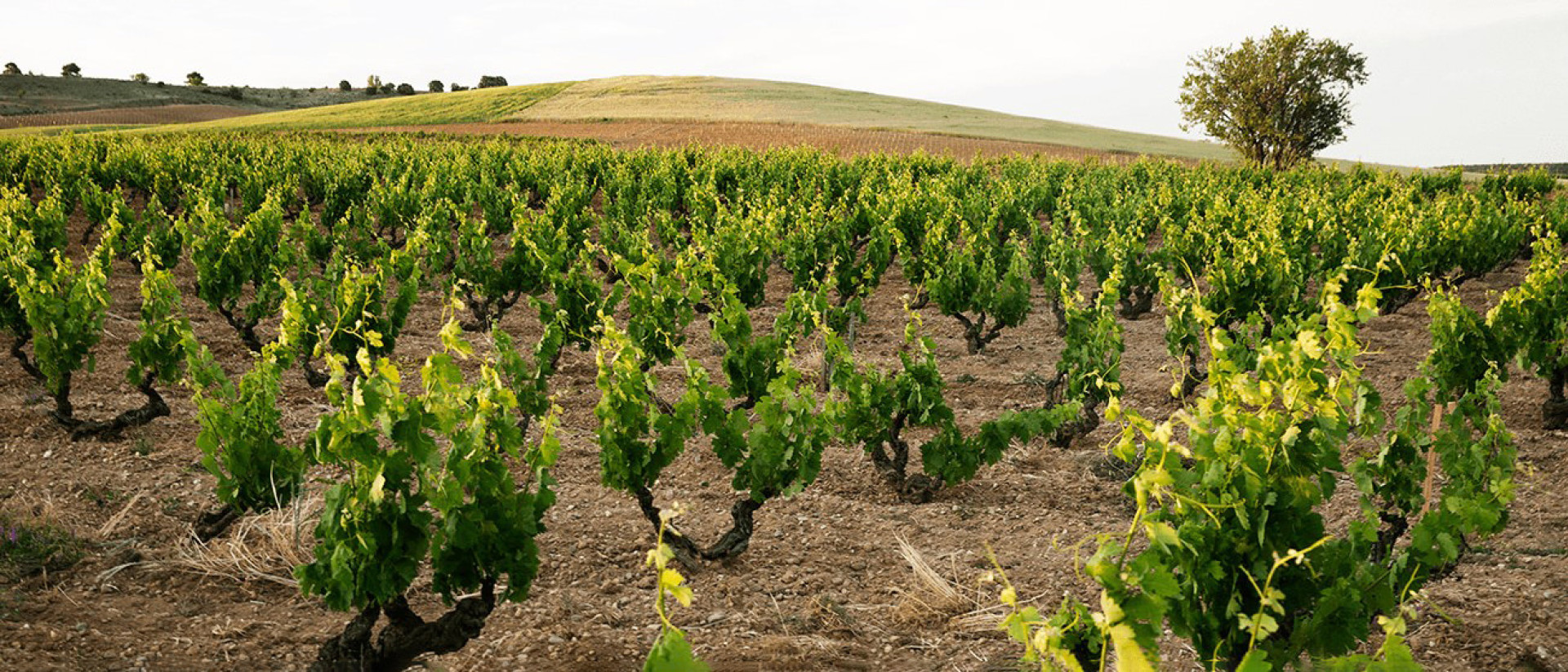Pingus

Producer profile
Listed Wines
Owner
Peter Sisseck
Sub-region
Ribera del Duero
Annual Production (Grand Vin)
500 cases
Interesting Fact
In November 1997 a ship carrying a US bound shipment of 75 cases of the 1995 vintage disappeared near the Azores, sparking a market frenzy and pushing prices up nearly 150%.

History
Visionary Danish winemaker Peter Sisseck had already made a name for himself at Hacienda Monasterio when he started Pingus – a work inspired by the old vines he saw dotted around the Ribera del Duero landscape during his time planting and developing Monasterio. By the 1995 Monasterio vintage, Sisseck had found several ancient vineyards, and set about making his own wine under the label Pingus – his childhood nickname.
From the very beginning Sisseck pushed the old Temranillo vines to their limits, spending a significant period of time pruning them back, straightening and lowering trunks and cutting canes back to just one or two buds per stump. His efforts paid off, and a visit to the March 1996 Bordeaux en primeur tastings catapulted the estate to industry-wide acclaim, with Robert Parker bestowing the 1995 vintage an unheard of 96-100 score on the back cover of Wine Advocate.
Since then Pingus has risen rapidly to cult status – less than 500 cases of the wine are produced each vintage and, stickler for quality, Sisseck does not allow wine to be produced from vintages deemed less than satisfactory.
Since 2001 the estate has employed biodynamic winemaking techniques, capitalising on this learning to create the single barrel cuvee Amelia, biodynamic from its very first vintage in 2003. Sisseck has also made a number of small but significant alterations to the winery, designed to give more depth to the Pingus phenomenon, and thus firmly establishing the name as one of Spain’s few globally-coveted wines.
Investment Overview
Critics agree that Pingus is one of the best wines in Spain, if not all of Europe, so naturally demand – and by extension, prices – reflect that.
Pingus’ original vintage, the 1995, has seen an explosion of interest of late, soaring 142% in value at the start of 2014. While this subsequently dropped somewhat, the vintage has shown a steady 44% growth over the last five years – a good investment if, of course, you can find it.
Interestingly, the 2004 vintage – the only to receive a round 100 score from Parker – has demonstrated 11% growth over the last five years, whereas the 2005, just one point off perfect with a score of 99, has rocketed by 82%. This is likely indicative of anticipated returns, given the current £9,000+ value of the 2004 – a trend that may well see the slightly lower scoring wine exceed its 100-point predecessor in value terms.
As with all wine that enjoys lofty cult status, availability is low and demand is high. Be prepared to pay well for admittance to the Pingus club, but expect a strong investment performance in return.
Wines Overview
Seventy-year-old vines, an unusually low average yield of 12 hectolitres per hectare, a commitment to biodynamic viticulture and extremely low production output are just some of the ingredients that make the well-renowned Pingus as sought-after as it is. Powerful, rich and complex, this 100% Tempranillo wine drinks well young, but only betters with age.
Pingus’ Second Wine Flor de Pingus also boasts a 100% Tempranillo blend, but is made with fruit rented from vineyards in the La Horra region. As the name ‘Flor’ would suggest, this is a perfumed, aromatic wine, but one which borrows from its big brother to offer toasted oak, coffee and mineral notes, too.
A single barrel cuvee made from a vineyard parcel of century-old vines, Pingus Amelia has been a biodynamically-driven wine since its initial 2003 vintage. Extremely exclusive with production averaging less than 50 cases per vintage, Pingus Amelia has received consistently strong scores from critics who laud its strong minerality, volume and density.
An investment like no other
We make investing in fine wine as effortless as drinking it - combining human expertise, data-driven tech and a love for fine wine.


